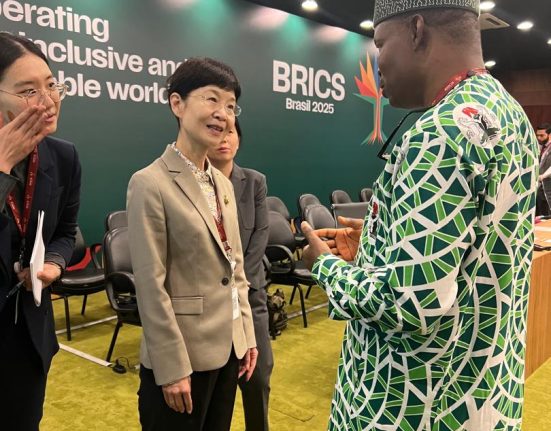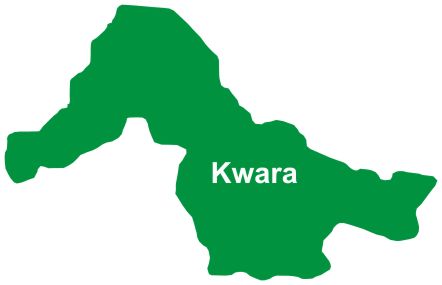The Kwara State Government has raised the alarm over the deepening shortage of medical doctors across its public health facilities, attributing the crisis to the ongoing wave of mass emigration of professionals, widely referred to as the ‘Japa syndrome’. Despite receiving executive approval to recruit additional doctors, the state’s Hospital Management Board lamented that available candidates were increasingly scarce due to the high demand for Nigerian-trained doctors both locally and abroad.
Speaking at the first quarter inter-ministerial press briefing held in Ilorin on Tuesday, the Executive Secretary of the Kwara State Hospital Management Board, Dr. Abdulraheem Abdulmalik, disclosed that the government was facing a difficult reality in trying to fill vacant positions in its healthcare workforce. He noted that although Governor Abdulrahman Abdulrazaq had given the green light to hire more doctors, the state simply could not find enough qualified professionals to employ.
“We have the approval of His Excellency to bring in more doctors, but the issue is that there are no doctors available to recruit. Right now, doctors are like gold—extremely scarce and in high demand. If one doctor resigns in the morning, he’s likely employed elsewhere before evening,” Dr. Abdulmalik said.
He added that the state currently has only 99 medical doctors on its payroll, a figure that falls significantly short of the 180 to 200 required to efficiently run Kwara’s 45 public health facilities. According to him, the figure had recently risen from 96 after three doctors who had earlier left the service returned, following a salary increase introduced by the state government to enhance retention.
As part of efforts to manage the impact of the shortfall and ease patient burden, Abdulmalik announced that the board was developing a digital application that would allow patients to view real-time data on the availability of doctors at each of the state’s medical centres. He explained that the measure was intended to minimise wait times and prevent life-threatening delays in accessing treatment, especially in facilities that were chronically understaffed.
Highlighting that the problem was more acute in rural parts of the state, the executive secretary said the board was exploring new incentive schemes and competitive remuneration packages aimed at attracting and retaining doctors. He stressed that the government was striving to offer compensation packages comparable to those in countries frequently targeted by migrating Nigerian health professionals.
To close the growing manpower gap in the long term, Abdulmalik revealed that the state had initiated a novel retention strategy, which involves sponsoring medical students from their clinical years in return for a service bond. Under the plan, students who receive financial support from the state for one to three years would be required to work for an equivalent period in Kwara’s health system before considering employment elsewhere. He said the programme, which is expected to take effect in the next three to four years, was designed to ensure a steady pipeline of medical professionals serving the state.
Addressing the issue of nurses leaving the country, Abdulmalik acknowledged that while some trained nurses also choose to emigrate, the situation was less alarming compared to that of doctors. He explained that many nurses, especially women, often remain in Nigeria due to social and familial ties. “They will ‘Japa’ regardless, but not at the same rate. We are not as desperate for nurses because their mobility is more restricted,” he stated.
Despite the staffing challenges, the health board boss reported that the state’s medical facilities had recorded a marked increase in patient enrolment and service delivery. Between January and April 2025, a total of 43,065 patients visited the 45 government-run hospitals across the state. Among them were 12,000 pregnant women, including 2,000 who were newly registered within the review period. Additionally, he said that over 1,000 surgeries were successfully conducted, while 1,384 child deliveries were recorded, with 131 performed through caesarean section. He noted that the caesarean section rate of 9.5 percent was within proximity of the 10 to 15 percent range recommended by the World Health Organization (WHO). However, the facilities also documented 30 mortalities during the period under review.
In a related development, Dr. Abdulmalik announced that the state government was making plans to collaborate with indigenous pharmaceutical manufacturers to reduce reliance on imported medicines, thereby cutting down on foreign exchange expenditures related to drug procurement.
Also speaking at the briefing, the state Commissioner for Justice, Ibrahim Sulyman—represented by A. Grillo—disclosed that Kwara courts handled a total of 437 criminal cases in the first quarter of the year. Out of this number, 47 cases had been concluded while 387 were still ongoing in various courts, including magistrates’, area courts, and high courts within and outside the state. Sulyman also confirmed that the Ministry of Justice generated N689 million in the same period through vetting of contract agreements, contributing significantly to the state’s internally generated revenue.







